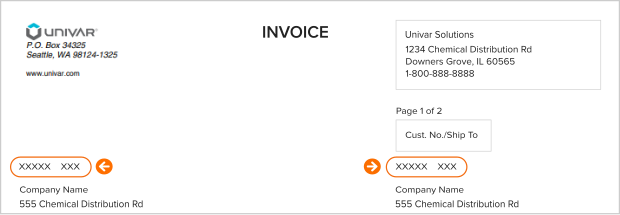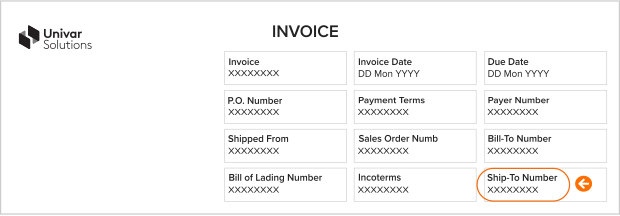We’re here to provide you with more information or help answer any questions you might have. Send us a note and we’ll get back to you as soon as possible.


Strong headwinds and supply chain disruptions in 2022 delivered a resilient surge for the U.S. chemical industry, which closed one of its best years in a decade with production rising 3.9%, according to data from the American Chemistry Council (ACC). That output is now expected to decline by 1.2% in 2023, as the industry currently faces a shallow recession, ACC predicts in its annual global chemical industry report (1). There are positive signs that supply chain resiliency planning and solutions on the horizon could bolster the chemical market sector.
With many environmental, social, and governance (ESG) factors impacting today’s businesses, Univar Solutions, the third-largest chemical and ingredients distributor in the world, takes a closer look at four of the top trends driving the future of chemical and ingredient distribution.
Supply chain issues
"A resilient supply chain is one that is able to absorb shocks without interrupting supply to customers," says Brandon Luna, vice president of supply chain strategy and commercial development at Univar Solutions, in the article Three strategies to securing a resilient supply chain.
As industries rebound from the past 24-plus months of volatile challenges – from the pandemic to raw material shortages, from port backups and rail disruptions to extreme weather and geopolitical events, and from factory shutdowns to labor shortages – focus is on building a more resilient, reliable, and data-predictable supply chain.
In 2023, transportation and shipping market sectors such as vessel, rail, and trucking have continued to recover from recent logistical and supply-chain issues. Below are key takeaways demonstrating that the chemical industry is moving at a healthier clip in 2023.
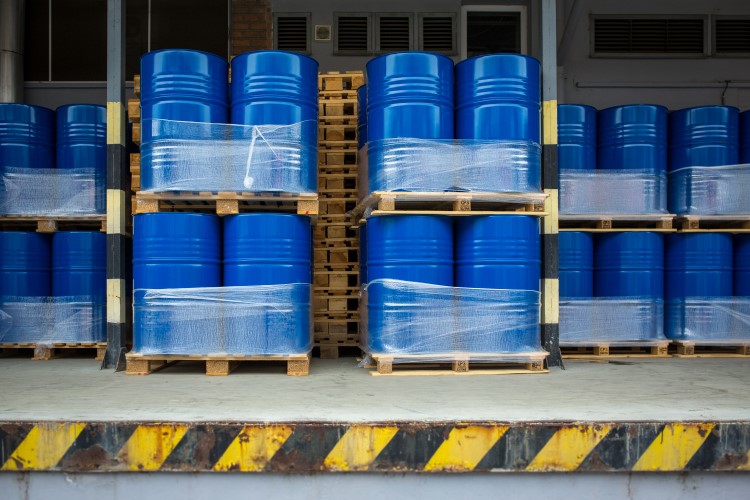

Implications for the Chemical Industry
- Transportation Capacity – Overall freight tonnage declines are likely as economic conditions return to pre-pandemic levels. Still, truckload demand remains healthy compared to historical norms, though improved routing guide compliance has caused significant spot market demand declines.
Listen now » to our Smart Acids™ podcast covering the rail transportation market and truck transportation market
- Global Vessel Schedule Reliability Barometer – Global schedule reliability improved by 4.7 percentage points M/M in November 2022 and reached 56.6%. The average delay for LATE vessel arrivals has also been improving consistently since the start of the year. In November 2022, average delay improved once again, dropping by another -0.58 days M/M to 5.04 days. Both schedule reliability and average delay are now better than the 2020 level as well. However, there is still a significant gap in rates between container vessels (down) versus bulk vessels (up).
- West Coast Port Labor Contract – No significant change with the conditions. There have been no further disruptions while media reports a discernible shift by major importers in favor of East Coast ports. The issue preventing agreement remains over jurisdiction in Seattle's T-5. The ILWU remains opposed to the IAMAW machinists maintaining certain work, now leading to NLRB hearings between ILWU, IAM, and Management.
- Port Congestion - By late November 2022, the container ship backlog outside Los Angeles-Long Beach was zero, down from a record 109 in January 2022. Dwell times for containers leaving the marine terminals by truck were back at or near pre-pandemic averages by October. U.S. East Coast ports continue to experience some levels of congestion as well as some ports in China.
- Capacity and Rates – Overall, spot rates are anticipated to decrease by 10% in January versus December across major East-West trades. Initially carriers were eager to push for rate increases effective on January 1. Now emphasis has shifted on blank sailings. Some of the blanked sailings look as if the service will soon be discontinued. The capacity management of carriers is one to watch – temporary and permanent measures. Demolition of unwanted capacity has begun, with more coming in 2023.
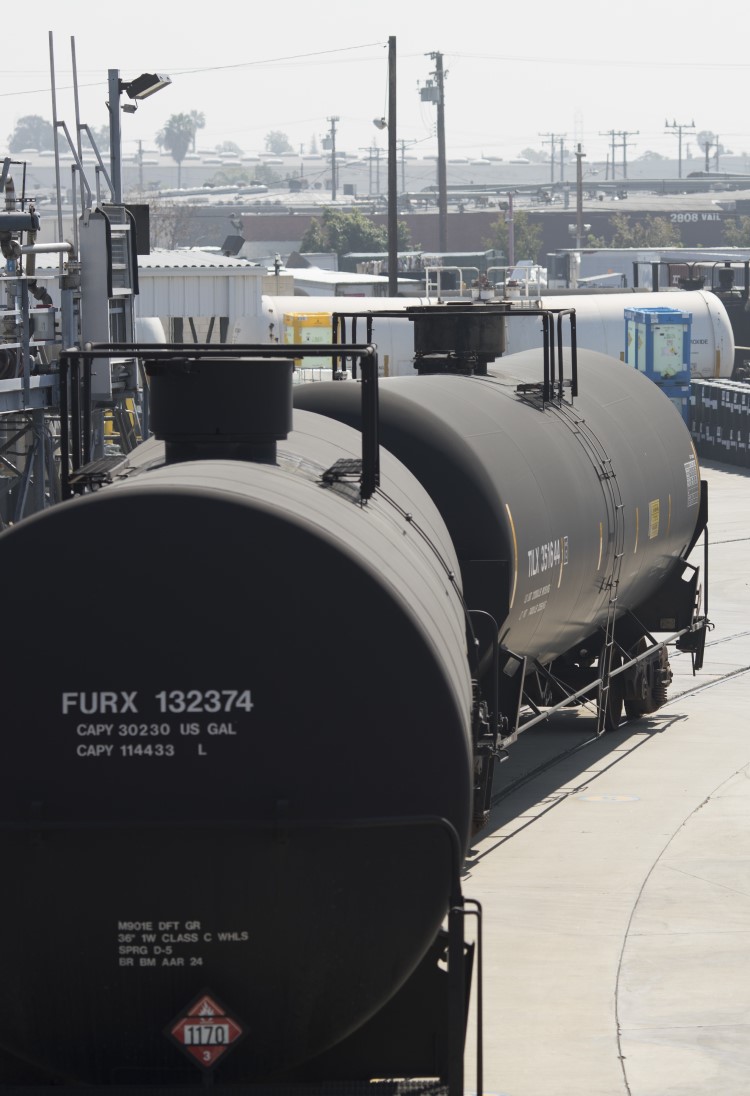

Global economy and politics
The global economy experienced swings from Europe's high energy prices, China's recovery struggling with zero-COVID policies, the war in Ukraine, the U.S. potentially heading into a recession, and high inflation in 2022. With China's recovery hard to predict until the end of the first quarter and the Europe recession taking effect (albeit not as severe), our updates focus on North America.
In the U.S., sensible regulatory policies are key to keeping manufacturing competitive, tempering the impacts of a downturn and regaining momentum, says ACC. Three ways the organization sees policymakers helping the chemical industry include:
- Providing strong support for U.S. energy development, including promoting infrastructure investment and permitting reforms.
- Fixing regulatory bottlenecks in EPA’s chemical management system to support innovative uses of chemistry.
- Updating U.S. transportation policies to promote greater access to reliable and competitive freight rail service and improving truck capacity on interstate highways.
In addition, we note the growing concerns globally to ensure sustainable and ethical sourcing of materials used in chemical manufacturing.
- The Uyghur Forced Labor Prevention Act (UFLPA) prohibits materials made in Xinjiang Province from importation to the U.S. This includes raw materials used in manufacture outside Xinjiang, calling into question sourcing of Chinese materials. Focus on mining, agricultural, silicon based, cotton materials, and the use of forced labor. CBP requirement: "Clear and convincing evidence of no forced labor"
- Custom Border Patrol (CBP) enforcement of UFLPA is escalating (estimated 20,000 detentions in '23 so far). Univar Solutions is developing in-depth supply chain mapping to minimize impact and mitigate risk.
Global Risks to the Chemical Industry
- Prices decline from historic highs – With working capital as a key metric for most corporations, inventories down the value near the consumer have been drawn down. Production has improved to stable conditions with importation having an impact globally on pricing.
- Know your source – The risk of buying product, such as silica, from Western China could mean buying product created through forced labor (UFLPA). Univar Solutions is serious about safety and responsible sourcing, distributing silicone products direct from Dow, which does not source material from this region.
- Big picture of the Chlor-Alkali market – While there was a weakness in chlorine demand in 2022, chlorine demand into PVC seems to be making a comeback, which could be a leading indicator of an improving economy. Keep an eye on PVC pipe sales and EDC exports, with low-cost energy in the U.S. Gulf Coast keeping the producers in a strong position to consume the available chlorine. All this is "good news" for PVC, and chlorine should put downward pressures on caustic soda pricing.
Listen now » Podcast: Bulk chemical big picture of Chlor-Alkali market dynamics
Sustainability
Sustainability has become a business imperative and key performance indicator shaping the future of distribution. As more companies define their ESG goals to address environmental policies and set targets to reduce carbon emissions, Univar Solutions is at the forefront of bringing innovative materials and technologies forward to support the circular economy and help control plastic pollution with responsible reuse and repackaging solutions.
More than an aspiration, ESG is core to how we conduct business and key to our commercial successes. With a commitment to sustainability, Univar Solutions is positively impacting ESG targets through freight and geographic consolidation, optimizing the supply chain and reducing travel miles, investing in EVs, hybrids, hydrogen, and CNG technology to help reduce the carbon impact of our fleet, as well as:
- Doing what we say – Univar Solutions has a solid code of conduct that prohibits supporting or buying from producers using unfair labor practices;
- Helping companies identify, quantify, and rationalize sustainable packaging options to reduce CO2 emissions;
- Through our mini-bulk services, creating a customized storage solution with tanks ranging from 235 to 3,000 gallons, freeing up storage for more operative usage, further optimizing delivery and reducing trips using wireless telemetry systems for tank monitoring; and
- Working with customers to distribute materials by leveraging waste management technologies for beneficial reuse, recycling, reclaim, waste to energy, thermal desorption, fuels-blending, incineration, and deep-wells.


Implications for the Chemical Industry
As brands consider what essential and key ingredients are needed to create or expand their existing product lines, planning to secure supply remains paramount. With access to a premier ingredient and specialty product portfolio, technical innovation ecosystem, and owned network of distribution assets, Univar Solutions can help customers scale and grow their sustainable offerings with confidence.
- We own the last mile of distribution to deliver essential and sustainable products reliably and safely, providing a sustainable option to help customers access materials, reduce shipping costs, and lower emissions.
- Through ChemCare services, we diverted 39 million pounds of waste from landfills and are on track to achieve zero-waste-to-landfill at 100% locations.
- Through our global Solution Centers, we are reformulating with sustainable and natural ingredients to replace traditional chemicals, deliver product efficiencies, help conserve resources, and address changing regulations such as reducing 1,4-dioxane levels in personal care and cleaning products by 2023.
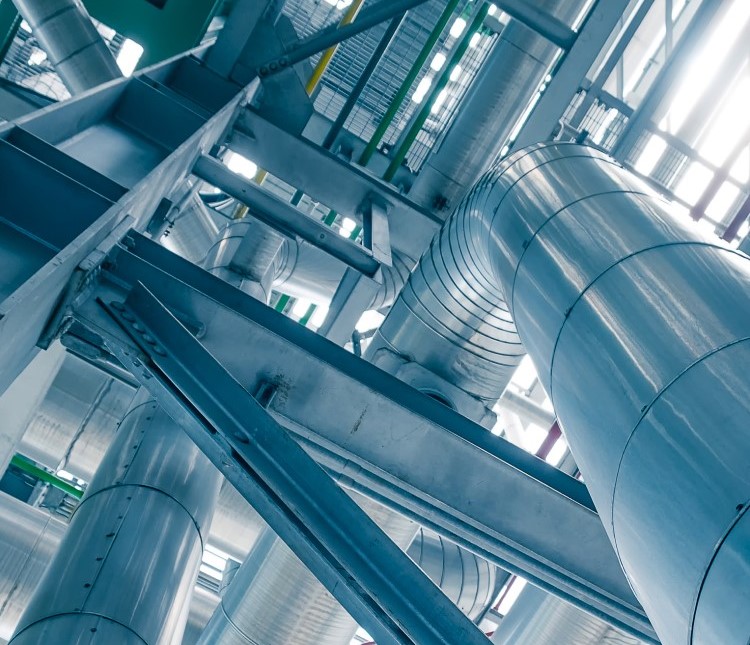

Digital technology
E-commerce, artificial intelligence, smart supply chain—these aren't just buzzwords for the chemical and ingredients industry. Digital tools have been critical to companies' efforts to improve the resilience of supply chain planning and execution, according to a recent survey by McKinsey & Company (4). From product transactions and sustainable operations to formulation development and testing, the chemical industry continues on its digital transformation in 2023.
On the digital transformation journey for the past four years, Univar Solutions has implemented a digital strategy that puts the customer at the center of everything we do. At the most basic level, we look at how we can simplify order intake, shipping, and billing. At a more consultative level, we find ways to help customers formulate their products, understand new solutions, deal with regulatory obstacles, and respond to emerging market trends.
Implications for the Chemical Industry
- As supply chains and production processes become increasingly complex, the chemical business must be equally agile.
- AI-enabled advanced analytics is helping the chemical industry track and analyze customer choices, model and predict consumer demand, identify logistical challenges, and predict product availability shortfalls.
- Univar Solutions provides a digital storefront to enable easy ordering 24/7. Digital solutions help synergize the efforts across our globally distributed assets: supply chains and logistics, labs and Solution Centers, e-commerce storefronts, and other customer service platforms.
Driving the future of distribution
Managing complexity and investing in solutions built around these top trends – supply chain, the global economy and politics, sustainability, and digital technology – will be key to the commercial successes of the chemical industry and beyond.
Even in uncertain times, Univar Solutions is never too far away with its local distribution network, sourcing options, lab expertise, and customer support for all specialty industries' chemical manufacturing, ingredient, and material needs. That includes handling over 15,000 products and delivering formulation solutions to solve technical challenges in the lab. We are focused on securing the global and local supply chain, helping businesses keep operations on track to minimize the effects of disruption—especially when unexpected human-made or natural events pose a risk to getting essential materials and chemistries to communities that need them to stay healthy, fed, clean, and safe.
References:
- American Chemistry Council (ACC): https://www.americanchemistry.com/chemistry-in-america/news-trends/press-release/2022/industry-outlook-competitive-edge-and-sensible-regulations-key-to-weathering-recession-for-us-chemical-producers
- Chemical Processing: https://www.chemicalprocessing.com/asset-management/economics/article/21439097/2023-chemicals-industry-outlook-brace-for-challenges
- Deloitte: https://www2.deloitte.com/us/en/pages/energy-and-resources/articles/chemical-industry-outlook.html
- McKinsey: https://www.mckinsey.com/capabilities/operations/our-insights/taking-the-pulse-of-shifting-supply-chains https://www.mckinsey.com/industries/chemicals/our-insights/the-state-of-the-chemical-industry-it-is-getting-more-complex
Section title










